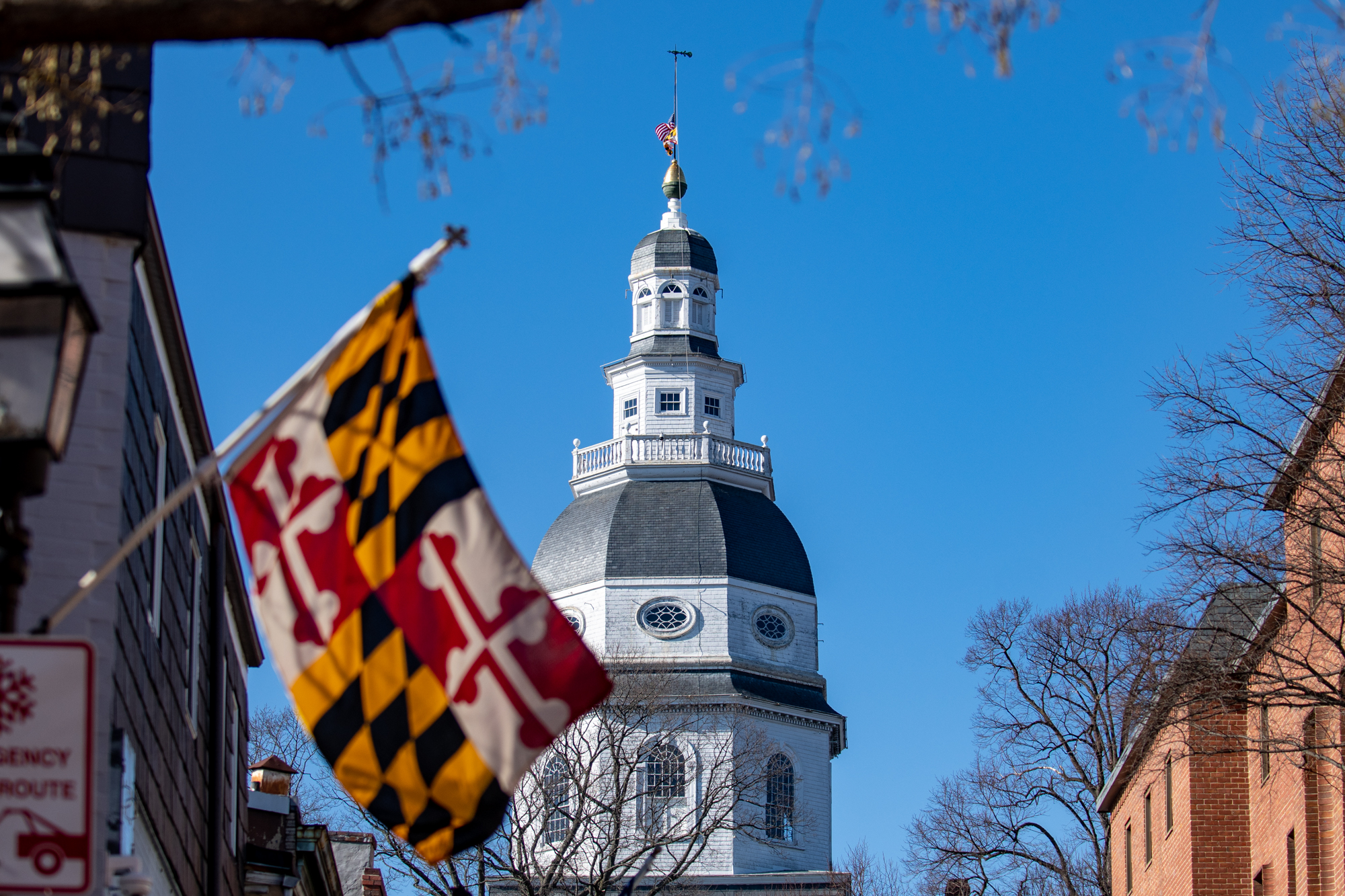Marylanders will be able to vote on numerous referendum efforts in November’s midterm election — including legalizing cannabis for adults 21 and over, requiring state legislators to reside in the legislative district in which they run for office and renaming certain state courts.
A ballot initiative or referendum is when the public votes on if a law or amendment should be implemented rather than the legislative government creating a law. Each referendum needs a simple majority to pass in November.
Legalizing Cannabis
After a session-long debate on cannabis legalization frameworks in the spring, the Maryland General Assembly voted to put a cannabis legalization question on the ballot this fall.
If the referendum is approved, Maryland residents 21 and older can possess up to 1.5 ounces of cannabis starting Jan. 1, 2023.
While the General Assembly creates a framework for the state’s cannabis industry in their spring 2023 session, people in possession of between 1.5 and 2.5 ounces of cannabis would be fined $100 between January and July 2023, according to state Sen. Brian Feldman (D-Montgomery).
But starting July 1, 2023, after the General Assembly has further outlined the state’s cannabis regulations, Marylanders aged 21 and over can possess up to 2.5 ounces of cannabis with no consequence. If a person is found in possession of more than that, there could be criminal charges, Feldman said.
[ Marylanders will vote on legalizing recreational marijuana in November]
More than half of Maryland residents support the legalization of cannabis, according to a March 2022 Goucher College poll.
But widespread access to recreational cannabis dispensaries may take some time, Feldman said. Maryland legalized medical cannabis in 2014, but the drug was not made available to patients until 2017.
“You can pass [the referendum] but then all these other things had to happen,” Feldman said. “There were lawsuits that challenged the way the [medical] licenses were rolled out, and that delayed it even further.”
Feldman said the General Assembly will reconvene in early 2023 and start establishing licensing laws for growing, operating dispensaries, testing and transport of cannabis if the referendum passes.
Del. Gabriel Acevero (D-Montgomery) voted for this November’s ballot referendum but was against the proposed ounce limit. He said it falls short of providing reparative justice for Black and brown communities.
Some advocacy groups and activists had hoped cannabis legalization frameworks in the state would account for the disproportionate impact of nonviolent drug convictions on people in the state.
The Montgomery County senator is reintroducing his bill from the 2022 legislative session to the General Assembly this spring aiming to expunge records of people who were convicted of possessing cannabis and people who are currently arrested for possession.
Acevero wants to promote equity in the cannabis industry and allow people to be able to grow cannabis at home as well as decriminalize drug paraphernalia .
“When we talk about the racist drug war, oftentimes people are arrested and incarcerated and charged for drug paraphernalia,” Acevero said.
State Legislator Residencies
If Maryland residents approve question two on their ballots this fall, state legislative candidates will be required maintain their primary residence in the legislative district they represent for at least six months before the date of an election or for as long as a district has been in existence.
State legislative candidates currently must reside in the district they want to represent at least six months prior to the election or for as long as the district has been in existence, according to Ballotpedia. State legislative candidates can have other residences outside of their district.
The measure would also change all language in the amended section of the Maryland Constitution to gender-neutral language if the referendum passes.
This ballot initiative would take effect on Jan. 1, 2024, if passed.
[UMD SGA committee focuses on student voters ahead of midterm election]
Maryland Court of Appeals Name Change
Maryland’s Court of Appeals would be renamed to the Supreme Court of Maryland and the Maryland Court of Special Appeals would be renamed to the Appellate Court of Maryland if voters pass question one in November.
Maryland and New York are currently the only states who do not refer to their state’s top court as the Supreme Court.
Maryland’s highest court not being named the Supreme Court has caused some confusion among its residents.
“There is confusion from beyond the borders of our state as lawyers, law students and litigants research, contact and even file papers with the wrong court,” Chief Judge of the Court of Appeals Mary Ellen Barbera told Ballotpedia.
Updates to Civil and Criminal Trial Provisions
To get a jury trial in a civil case, the minimum amount of money disputed may rise if question three passes.
A current civil case must dispute at least $15,000 to have a jury trial. If question three passes, the new minimum amount will be $25,000.
Howard County Judiciary Changes
If question five passes, Howard County Circuit Court judges would be required to serve in orphan’s court — which deals with wills and estates.



